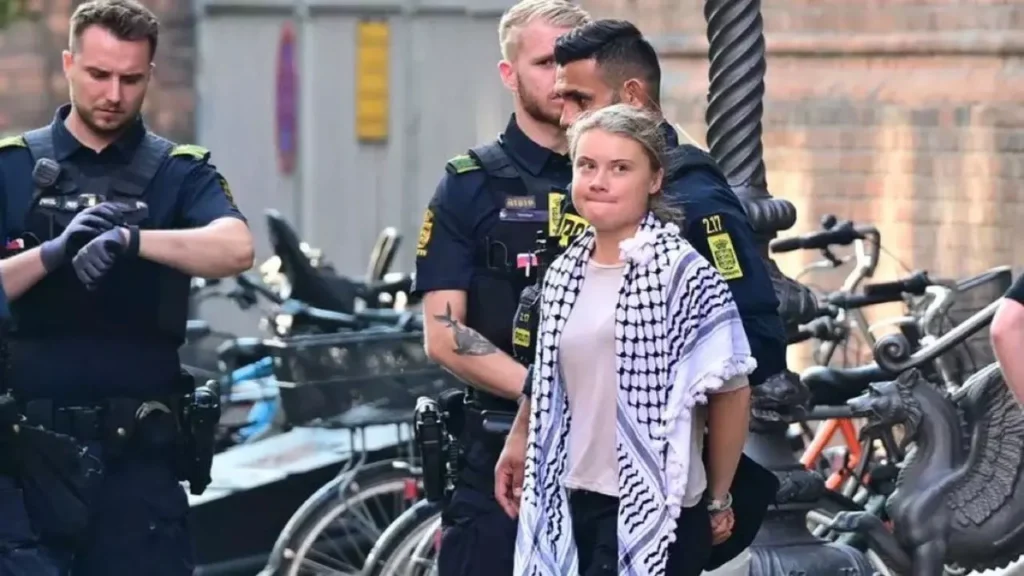Swedish climate activist Greta Thunberg was arrested on Wednesday during a demonstration at the University of Copenhagen. The 21-year-old, known globally for her environmental activism, was participating in a protest calling for an academic boycott of Israeli universities. The demonstration, organized by the “Students against the Occupation” group, aimed to highlight the civilian casualties in the Gaza Strip and occupied West Bank, as well as the environmental impact of Israel’s actions in the region.

Thunberg, wearing a black and white keffiyeh, was photographed by the Danish daily Ekstra Bladet being escorted off the university campus by police. According to a spokesman from the Copenhagen police, she and several other protesters were accused of “forcing their way” into a university building and “blocking the entrance.”
This incident is part of a broader series of protests at academic institutions worldwide, where students have been demanding an end to cooperation between universities and Israel. The movement has gained momentum in light of recent conflicts, with activists seeking to draw attention to the humanitarian and environmental costs of the ongoing violence.
Thunberg’s arrest in Denmark is not an isolated event. Earlier this year, she was detained in the Netherlands during a climate protest and joined a demonstration in Malmö, Sweden, opposing Israel’s participation in the Eurovision Song Contest. These actions underscore her commitment to linking environmental activism with broader social justice causes, including opposition to military actions and occupations.
As the global conversation around the Israeli-Palestinian conflict continues to evolve, protests like the one in Copenhagen reflect a growing intersection between environmental and human rights activism. Thunberg’s involvement in these protests signals a shift in her focus from purely climate-related issues to a broader agenda encompassing peace, justice, and human rights.








